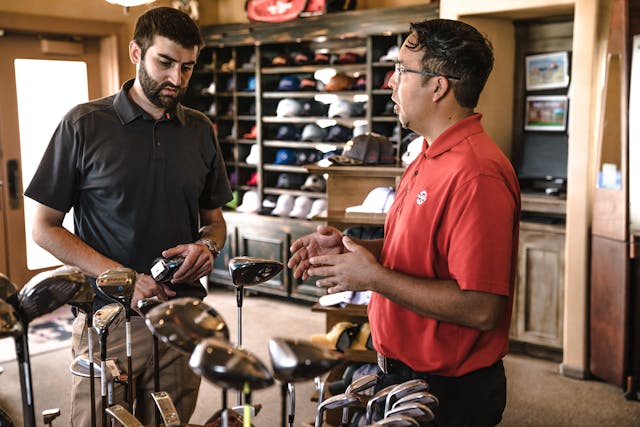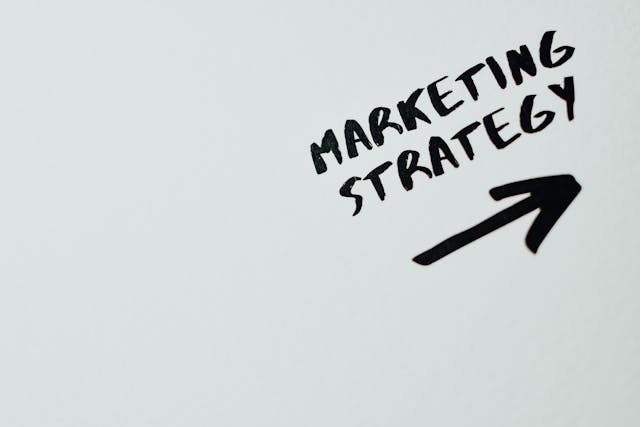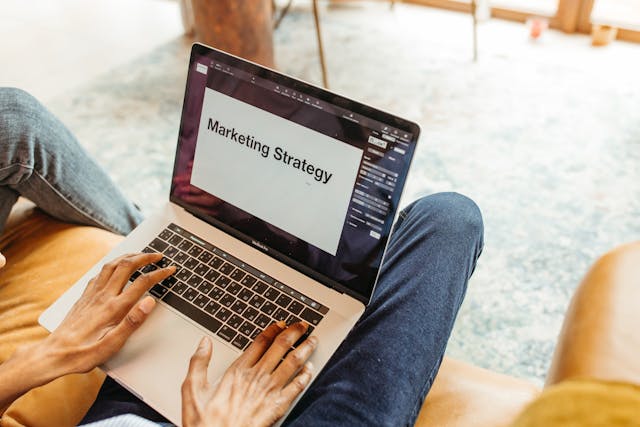How influencers helped grow our brand” In conversation with Avinash Rajan, Founder and CEO, Offspring

If like us, you’ve been wondering just what it is that makes a brand loved, Laura chatted to Avinash Rajan to see what he thinks. He’s the Founder and CEO of Offspring, a social savings tool designed for families and their children. Tell me about your brand and why people love it. “Offspring lets people come together to save for a shared goal. You can collect money for a child’s present, save towards a holiday with friends, or contribute towards a wedding or deposit for a house. Whatever you want to save for, Offspring makes it simple.” What 3 words best describe your brand? “Together, family, simplicity.” What has helped your brand grow? “I think it would be fair to say that we’re very clear about the job we are trying to do for people, and about the target market we’re focused on (parents who’ve got children between zero and 35). The second thing we’ve done is backed our product with service levels that are very personal. And thirdly, we’ve worked with micro-influencers. We’ve focused on people who have a small but dedicated following and work in and around families. They have a very personal interaction with all the people who are following them – and that worked particularly well for us in terms of getting our brand out and getting people using it. There’s an element of needing to be careful about who you’re working with because influencers have an impact on the brand. So it’s very important to understand what makes a good fit and choose influencers who truly believe in the product and will use it themselves.” “If your solution can help somebody do their job quicker, cheaper, faster or simpler, and they are willing to pay the price to use your solution, then you’re in a much, much better place in terms of making your brand strong and popular.” How will you grow your brand in the future? “We have a mission of helping younger people start with a little less debt than they currently do. We believe that, in order to achieve this in the long term, we have to help families pass down wealth from one generation to another in the most efficient way. We’d like to work with established financial services brands to help them build relationships with customers across multiple generations. We ran a pilot with Nationwide Building Society earlier this year. And we are working with a range of other financial services providers. We use open banking capability and that allows us to work with any of the big players who are part of that initiative.” What would you tell yourself if you were starting the business today? “I would say go and talk to your customers. Understand what jobs they’re trying to do and consider whether the solution that you are building is something that will make it easier for them to do their jobs. And then finally, you need to know if they’ll pay a price to be able to do that. And I don’t mean price in terms of monetary value, but more regarding whether they will stop what they’re doing and use your brand, because there’s a certain price to that as well.” How can we make financial service brands more well-loved? “In a broad sense, financial services play a role as a utility in allowing people to be able to do something that they want to do. In order to be loved, what you have to do is three things. You have to say what you do, clearly. You have to provide a great service on the back of that. And thirdly, you have to fulfil the promise that you’ve made upfront. So when you say you’re delivering something, you have to be able to back that up by fulfilling the promise.” What’s your favourite app or tech right now? “The tool that I am most involved with currently is my Fitbit because it measures my walking steps –I’m trying to keep to 15,000 steps every day. That’s my goal. So I’m interested in anything that helps me achieve that.” What’s your best business book/podcast recommendation? “The book that I’ve read most recently and loved, because it sort of represents my start-up life, is Lost and Founder by Rand Fishkin, who set up a company called Moss. It’s a book that you can read very quickly but learn from the things that people have experienced in the past. So I would highly recommend that. A podcast I listen to quite a lot right now is Freakonomics and an offshoot of that called No Stupid Questions. I particularly like both of these because they spend a lot of time discussing things related to behavioural economics, which has a big role to play in what we are trying to do with Offspring.” If you enjoyed reading this, download our new guide, 7 Ways to Make your Marketing Unstoppable and discover more fascinating insights, direct from some of our best-loved brands. To get a hard copy just send us your details here.
Why we built our brand from the inside-out” In conversation with Gaynor Rigby, Managing Partner of Equilibrium Financial Planning

We’ve been speaking to some of the financial brands we love and admire the most. Here, Laura talks to Gaynor Rigby, Managing Partner of Equilibrium Financial Planning, a business that’s been in the top ten of ‘The Sunday Times 100 Best Small Companies to Work For’ for the past four years. Tell me about your brand and why people love it. “When I joined the business around 10 years ago, we had about 20 staff doing financial planning and investment management. A lot of people are doing both now, but back then it was quite niche, especially for such a small firm. Since I joined, we’ve been on a journey with the brand – our sole purpose is to make people’s lives better, and everything we do is very much about that. We started off focusing more on the team and what we wanted it to be like as a place to work. And then it grew organically into what we do for our clients. It’s an approach that’s replicated in a great book called Vivid Vision which talks about your mission statement not as a paragraph, but why you do what you do and how you bring it to life. It’s a kind of inside-out approach but it works.” What 3 words best describe your brand? “Friendly, authentic, agile.” How do you think you can evidence that a brand is loved? “I think one thing is that your clients stick around. We’ve got a very high retention rate and rarely lose them once they come on board. We survey them so we don’t take it for granted and while everyone likes to think they’re doing a great job, the proof is in the pudding.” What has helped your brand grow? “I think our focus on culture and the team is probably the core of that. We have spent a lot of time and energy on ensuring that this is a great place to work. And when that is the case, it attracts a person that wants to be part of something other than turning up, churning through some reports and leaving at the end of the day. We attract people that are interested in making a difference. We’ve also been agile to what’s going on in the marketplace – even creating our own funds to give people a better return.” How will you grow your brand in the future? “We have moved a lot online and are lucky that our demographic lends itself to that – we’ve all become pretty savvy with Zoom and Teams. Our next thing to figure out, is the lifecycle of someone that interacts with us over that technology. Zoom is totally different to an in-person journey. So we are getting our MI really good so that we can see what’s happening at every stage, where we might need to fine-tune and add in those personal touches.” “Communication is a big thing for us. We’ve had a marketing department since we were a very new company, but it’s ensured there’s consistency and a professional element to what we do.” What would you tell yourself if you were starting the business today? “It’s terrible to say, but I would do what I did. The advice too early wouldn’t have worked. So some of what we have done now, we wouldn’t have been able to deal with and it wouldn’t have landed if we had done it too early. But if I were to say one thing, it would be to delegate sooner.” How can we make financial service brands more well-loved? “I think if you can be clear on what it is that you’re trying to deliver and the purpose of it, then use that as the filter, then I think the genuineness and the authenticity of a lot of brands would shine through. Then hopefully, those that are just in it to make big bucks at whatever expense would get overshadowed.” What’s your favourite app or tech right now? “Internally, Asana is our favourite. We’ve got an Asana champion, Tony who we call our Chief Transformation Officer. He has a real passion for systems, processes and technology and how we apply that in the business – and really helped us out with Asana when we didn’t really know how to use it. So he’s been a godsend.” What’s your best business book/podcast recommendation? “A book that I thoroughly enjoyed reading early on in my career was The Five Temptations of the CEO by Patrick Lencioni. He also wrote The Five Dysfunctions of a Team, which is like a fable with some great business messages in it. Another one, which is more like a textbook on how you should run your business, is called Scaling Up by Verne Harnish. If there is a book that anyone asks if they should read in order to run a business, it’s this one.” If you enjoyed reading this, download our new guide, 7 Ways to Make your Marketing Unstoppable and discover more fascinating insights, direct from some of our best-loved brands. To get a hard copy just send us your details here.
How the power of purpose can help grow your brand” In conversation with Pete Markey, Chief Marketing Officer, TSB Bank

Continuing our mission to discover what makes a brand loved, Laura chatted to Pete Markey, Chief Marketing Officer at TSB Bank. Once a legacy brand from the 1980s, today it has been transformed into a modern bank with more than 5 million customers. Tell me about your brand and why people love it. “People use us because our whole purpose is around money confidence, for everyone, every day. That came out of some work we did looking at who the customers are that we serve and that we want to serve more of. What’s interesting is that money confidence is all about life confidence. If people are confident with their money, they feel more confident to make the right decisions in life.” What 3 words best describe your brand? “Nice, Modern, Challenger – or it could be The Nice Bank.” How do you think you can evidence that a brand is loved? “I think the Net Promoter Score is really helpful and the customer advocacy metrics that tell you if someone is likely to recommend your brand and product. I also look at brands I admire to see what they’re doing. Friend referral schemes are good because it takes a lot to recommend a brand to other people. We also measure colleague advocacy through our staff engagement survey – if you can get it to a place where staff love working with the brand, they want to recommend it to their customers. It’s a really powerful place to be.” What has helped your brand grow? “The first one is being purpose-driven. So actually, deploying on purpose, being consistent with the purpose and messaging and keeping that centre stage. It’s not just communication, but how we design products and services that has been really key. The second is a culture thing. People genuinely care about the business and its customers. And I don’t think that’s true of every business. And thirdly, we’ve been working with Pride of Britain and have just extended that partnership for another five years. It galvanises people – they unite around the idea that there are selfless people who want to help others. It’s been a great thing to be associated with and a really important part of our brand story.” “There’s a beating heart in TSB. Some businesses are like machines, where it’s hard to find a pulse. But here, people genuinely care about the business and its customers.” How will you grow your brand in the future? “Firstly, deepening customer relationships through our data and technology. We’re investing in the Adobe Experience platform which is a great bit of cloud-based tech. It will allow us to have real-time conversations with customers and drive the right kind of outcomes for them. The second is about ongoing enhancements to the customer experience. I’m responsible for all of TSB’s digital sales journeys and will continue to enhance, evolve and improve that. And thirdly, you’ll see us do a lot more around demonstrating the modern face of TSB and what our purpose is about, including Pride of Britain.” What would you tell yourself if you were starting the business today? “If I look at the early days when I first came to TSB, and how we galvanised the business around us, I would have energised the things that I know we’re easily energised around now. As marketers, you’ve got to do more than just do the communication for a business. You’ve got to help make the purpose real, from the culture to the products, the services and the environment in which those products and services come to life. If I was advising anybody, it would be to get around that purpose really quickly, create energy and make it real every single day.” How can we make financial service brands more well-loved? “For me, the key is listening to customers and understanding their changing needs. The most successful brands will be the ones that can maintain their relevance in people’s lives. It’s ultimately about customer experience and that includes the right products, the right service experience and the right timing. Our job is to make things as easy or straightforward for customers and as frictionless as possible.” What’s your favourite app or tech right now? “There’s a brain training app called Elevate which tests your knowledge of Maths and is really good. From a customer experience point of view, I also like the Boots app. You can see your advantage card points and it’s great on a practical level.” What’s your best business book/podcast recommendation? “Mark Evans, the Marketing Director of Direct Line, has a brilliant podcast called Oh the Places we’ll Go. Every week he has an amazing array of guests from the marketing and advertising industry. It’s fun, very, very clever and has become essential listening.” If you enjoyed reading this, download our new guide, 7 Ways to Make your Marketing Unstoppable and discover more fascinating insights, direct from some of our best-loved brands. To get a hard copy just send us your details here.
Why you need to listen to unhappy customers” In conversation with Jason Chapman, MD of Willis Owen

In our quest to discover what makes a brand loved, Laura spoke to some of the financial brands we love and admire the most. First up is Jason Chapman, MD of Willis Owen, a business that’s on a mission to help people get to grips with investing. Tell me about your brand and why people love it. “When I came across the business in 2012, I had a group of customers that were already part of the Willis Owen family. They didn’t really hear from us very often, but it was an asset that I really wanted to nurture. At the same time, I wanted to reach a younger generation by building a digital platform. We started on a journey to recreate Willis Owen. The one great thing about Willis Owen is its longevity – that builds trust which is important because we’re not selling books on Amazon, we are helping customers take care of their financial future.” What 3 words best describe your brand? “Dependable, trusted and exciting” How do you think you can evidence that a brand is loved? “The first obvious one is that customers tell you. And the fact that sometimes customers tell you they’re not happy, means that they still love you. Otherwise they just walk. I get a lot of feedback from the people I work with and from the customers. One of the things I love about Apple was that I had a problem once and I rang them and they sorted it. Almost immediately, I got sent three questions that said, ‘how did we do?. We adopted that in Willis Owen – we get real instant responses to how customers feel about their experience. And that’s one of the great things about us. We listen and we change.” What has helped your brand grow? “I was given time by the owner and investor to build a brand. So I could think about what I was doing in that space. It helped us because we talked to existing customers directly. And we also talked to people who weren’t our customers. We wanted to understand why people think there is this big gap between what financial advisors used to do and how we can replicate some of that in a digital space. We really wanted to understand how we could help with that and grow as a business.” How will you grow your brand in the future? “We need to stand out and be different in a world where underneath all of the first layer, we’re all really similar. Willis Owen is a brand that has been around a while but it’s quite small. How do we jump up and down and make enough noise? I think I’ve always felt this in my career, that we don’t talk to customers well in financial services. We overcomplicate, we’re a little arrogant, we tend to think we can do better. And I think we need to change our language. And that’s what we’re trying to do here.” “If you can listen to customers and change the things that matter, they will follow you.” What would you tell yourself if you were starting the business today? “Knowing what I know now, I think I could have done some things a lot quicker than I ended up doing them. We learned some tough lessons, but I think anybody that runs an organisation has to go through those. Could I have learnt those tough lessons in a week rather than a month? Yeah, absolutely.” How can we make financial service brands more well-loved!? “I think we could definitely simplify. I think that we are seen as being overly complicated. I think that’s the big problem with both digital and our product, is that we have a complicated entry-in journey and we have a complicated end product. I think you put those two things together and on a Sunday evening, would you rather have a glass of red wine and a bowl of spaghetti, or get down and sort your financial future out? I know which one I’d like to do.” What’s your favourite app or tech right now? “What’s making my life easier is things like Teams and an app I came across, which is Microsoft To Do List. That sounds really sad, but given the amount of time I spend working, if I can be more effective, it gives me more time to do the things I really like to do.” What’s your best business book/podcast recommendation? “I read, many years ago, Good to Great by Jim Collins. And it really struck a chord about everybody being on the same bus. And I’m reading a book called Subscribed at the moment, which is by Tien Tzuo. Because I think in financial services, that’s a model that could really work if done well.” If you enjoyed reading this, download our new guide, 7 Ways to Make your Marketing Unstoppable, and discover more fascinating insights, direct from some of our best-loved brands. To get a hard copy just send us your details here.
How simplicity drives our business” In conversation with Jasper Martens, Chief Marketing Officer, PensionBee

What makes a brand loved? To get to the bottom of that question, Laura spent some time talking to Jasper Martens, Chief Marketing Officer at PensionBee. He’s made it his mission to bring pensions kicking and screaming into the 21st century. Tell me about your brand and why people love it. “PensionBee is a mobile pension provider. We are making pensions simple, but also engaging, by combining pensions from your previous jobs, all in one new online plan that you can manage on any device you want. The simplicity of the brand is what customers really love – taking something really complicated and fixing it in under five minutes. In a nutshell, that’s what we’re about.” What 3 words best describe your brand? “Simple, innovative, confident.” How do you think you can evidence that a brand is loved? “What stands out for me is how many people are recommending PensionBee to their friends. I think that’s a very good indicator that we’re doing something right – along with a great retention rate of 97%. The other one that goes quite deep is people’s behaviour. People are logging in 10 or 12 times a month on their mobile app to see their balance, to engage and contribute. For me, those are all indicators that people clearly love the product.” What has helped your brand grow? “For us, it’s loving our customers. If you love them, you make the pension product simple to understand and entice people to engage with their pension. So having customer love at the heart of your business is the first thing that helps you grow your brand. Of course, it’s also about simplicity and trust. And finally, Instagram has definitely helped us grow. With an Insta story we can show a problem – and then offer a solution within a few seconds. It’s job done. We’ve also invested in meaningful relationships with the key journalists. They know we have our finger on the pulse and ask us to comment on things that happen in pension-land. So we’ve become an authority on the topics we want to have authority over.” “It was always about loving our customers – because that means you want to take care of them and build a product that suits their needs. Other pension providers aren’t doing that.” How will you grow your brand in the future? “I’m excited about launching our first fossil fuel free pension in the UK. It will give our customers a great return – and make the planet a better place too. We’ve also just launched another pension designed to make it easier for the self-employed to contribute to a scheme. We’re doing more through our app – downloads have shot through the roof recently! And we’re using YouTube to share videos of customers using PensionBee, taken on their own phones. It helps us reach other customers – and it’s genuine.” How can we make financial service brands more well-loved? “Where I often see financial brands going wrong is that their headline might sound great, but then follows so much jargon. Lots of disclaimers, risk warnings, compliance or ineffective copy. It looks stuffy and too hard to handle. So for me, keeping something really simple is the magic ingredient. If we didn’t make it simple, if we did offer you 500 different plans to pick from, can you really see yourself scrolling through them on the train? It doesn’t work.” What’s your favourite app or tech right now? “I am still a massive Monzo fan. I have been for two and a half years actually. It was nerve-wracking to suddenly deposit my salary into their account. But two and a half years down the line, I’m using their app on a daily basis and I’m in love with Monzo still. And maybe I’m a bit late to the party, but I’m now controlling my heating and my lights with my voice. I connected my voice speaker with my Nest thermostats and smart lighting – it’s a bit of tech that I really seem to enjoy.” What’s your best business book/podcast recommendation? “Not jumping too much on the bandwagon, but I really do like the FinTech Insider podcast from Simon Taylor and crew. I tune in almost every week. It’s very fintech-y. Sometimes it’s a bit geeky. If you want to get up to speed in terms of what’s going on in FinTech Land then for me, it’s the podcast to go to.” If you enjoyed reading this, download our new guide, 7 Ways to Make your Marketing Unstoppable, and discover more fascinating insights, direct from some of our best-loved brands. To get a hard copy just send us your details here.
The problem with planning – and how to fix it

There are many types of planning – there’s the annual meeting, the weekly catch-up, the fortnightly Agile ‘sprint’, even the morning stand-up. They all target different timeframes, but they work towards the same broad goal, making sure everyone’s on the same page. We exit the annual meeting pumped about the next 12 months, the sprint planning session brings the next two weeks into sharp focus, and after the stand-up everybody knows what we’re working on today. But what about the middle ground, the more medium-term goals? Here’s where it gets murky. Like it or not, humans tend to drift. It’s true with diets, exercise or learning a language and it’s true in business too. What seemed certain at a meeting may be less well-defined a few weeks later. It’s not just about us either – what our audiences need and expect from us may well change over the course of a few weeks, so we need to be able to respond to that too. Here’s where 90-day planning comes in. It’s a strategy of regular goal setting and course-correction that keeps all parts of your organisation pulling in the right direction. The problem with planning As it stands, planning poses its own problems. In a sense that’s because the way to chaos is paved with good intentions that aren’t always possible to follow up, at least not in the way we expected. Of course we all want more leads, we’re all looking for more growth and new opportunities, but setting out our mission and realising it aren’t the same thing. In one way, planning too far in advance with too few sessions can be the culprit, not giving ourselves enough contingency for change. But what’s more likely is that if we don’t have a reliable mechanism to review and correct our course, our circumstances change, our priorities shift and to be completely honest, things get forgotten about. By conditioning your organisation to think in 90-day planning cycles (each referencing the previous one) and crucially, by introducing accountability, you’re less likely to drift so drastically. So why 90 days? Well, there are two key sets of reasons. First, the external factors – as business owners we’ve long faced the dichotomy of needing to plan for the future while not being able to predict what’s coming next. This is what makes 90 days something of a magic number. The 90-day period is long enough to set out a rolling vision of the future and check in on how those plans are progressing, but it’s also short enough to not get too far ahead of ourselves, or assume that the landscape will look the same 12 months from now. The world is uncertain. To point to 2020 as an illustration of that would seem like shooting fish in a barrel, but even in a ‘normal’ year without the high drama of the last 12 months, things don’t stand still. The parameters we work within and the assumptions that hold true in March may be very different by June and annual planning alone won’t cut it. If priorities and circumstances change, you need to be able to respond. Then there are the internal factors, which essentially means our own flawed behaviour. Entrepreneurial Operating System ® (EOS) founder and author of ‘Traction’ Gino Wickman notes a baleful statistic that most people drop their new year’s resolution by the second week of February. Why? Because the “inability to sustain effort and commitment toward one or more big goals is simply human nature.” He points out that a great annual planning session might leave its attendees completely united in purpose and vision, but 90 days later things will have changed – “you will get far off track, start to lose great people, lose sight of your vision, and end up right back where you started – in chaos.” There’s also what’s known as ‘shiny object syndrome’, which is dangerous and instrumental in distraction, sending us off down different paths when things seem attractive but aren’t an agreed priority. Once again, 90 days is a great figure to work with, long enough to allow those movements to become clear and correct them, but short enough to minimise damage caused by moving in the wrong direction for too long. 90-day planning as part of your toolkit It’s important to remember that the 90-day marketing planning approach is a complementary one. We’d never suggest replacing your annual meeting, because it’s important and it serves a different purpose. Annual planning is there to make sure your team is clear, committed and aligned to your long-term vision. Your 90-day planning sessions are there to make sure you keep the essence of that plan in place, correct any drift and make any necessary adjustments in light of new information. It’s also there to set out what your audience will expect from you over those 90 days and to enable you to adjust your approach as those expectations change. Wickman says human nature means that over time, “the rope begins to fray.” That’s why, every 90 days, it’s important to come together to get back on track. It’s a way to regularly refresh and refocus, before embarking on the next 90-day period. How we can help We use 90-day planning ourselves, here at Uniquity. We know that it’s good for us and good for our clients too, and we can help you to introduce it to your business, or fine-tune your existing approach. One of the key tenets is setting priorities, something that the EOS framework calls ‘Rocks’. They represent the key things you need to accomplish over the next 90 days. Not everything is a rock – you should be looking for between three and seven rocks per 90-day period. That’s because of the simple fact that everything can’t be a top priority. Warren Buffett was clear on this – if you have 25 priorities and you circle the top five, then the way forward should be to concentrate on those five and
Press reset on your marketing strategy

As the second wave of Covid-19 looks inevitable and new measures are introduced, it looks like we’re heading for another period of uncertainty – and a new raft of business challenges. So how can we turn this into something positive? Use this time to review and reset your marketing objectives, and you can press play on growing your business, while the rest of the world is hitting pause again. “Execution is a specific set of behaviours and techniques that companies need to master in order to have competitive advantage. It’s a discipline of its own.” Ram Charan & Larry Bossidy, Execution Learning from lockdown Having survived the first lockdown, we’re hopefully better equipped to deal with whatever comes next, especially if we take note of the lessons learnt. The way our clients adapted to and implemented change on a very rapid basis was highly impressive. Those who weathered the storm best, were the ones who had these things well-and-truly locked down: Review, reset, reap the rewards So, learning the lessons from the last lockdown, there’s plenty you can be doing now to keep your business in tip-top shape while we sit this thing out. Firstly, forget a year-long detailed marketing plan. Nothing is as crucial as reviewing your goals and resetting them to suit this new normal. And above all, ensuring they’re adaptable – because quite frankly, who knows what will happen next! “However beautiful the strategy, you should occasionally look at the results.” Sir Winston Churchill For the clients that we provide outsourced marketing to, we’ll be carrying out a regular 90-day review to check their objectives, activities and performance. Then we’ll set out an outline plan of activity in calendar format, making sure we check in with them every two weeks to see how everything is progressing. With each review, we’ll be looking for answers to these questions: Secondly, make the most of all the digital channels out there to connect with your clients. And if you’re not confident you know what you’re doing, don’t be afraid to obtain, recruit or buy in the knowledge you need. If budgets are tight, work out what you need to deliver and see if you can cut anything elsewhere to pay for it. “The essence of strategy is choosing what not to do.”Michael Porter At Uniquity, we’ve spent the last six months investing in learning with Digital Marketeer, ensuring our skills are bang up to date. We’ve also become StoryBrand Certified Guides to ensure we can help our clients clarify their message and create a marketing strategy that works. Basically our advice would be, work out what skills you need and go find them. Need help to reset? Why not book a call to discuss a reset strategy for your business? Together we can ensure you emerge from these strange times fighting fit and in a better place than when it all started.
Join our team – Marketing Account Executive

Looking to develop your skills & boost your marketing career? We have the role for you! Who are we and what are we looking for? We are Uniquity. We deliver transformational marketing to help financial services firms realise their business potential. We pride ourselves on being agile, dynamic and a successfully growing marketing consultancy based in Bristol. We are a young, evolving business, looking for someone with a real desire to learn to join our team in a supporting capacity. We have an expanding financial services client base with a demand for digital, print and design marketing services. You’ll get to work across the full spectrum of marketing campaigns both online and offline, as well as event management. You’ll work with a fantastic studio of designers, copywriters and web developers, and you’ll have of exposure to different work streams. This will be a very varied role and you’ll learn a lot. We want you to share in our success as we go from strength to strength. Marketing Account Executive We identified the need for an Account Executive to join our team. Our ideal candidate will have a recognised marketing qualification with at least a year of agency or marketing work experience, but there is some flexibility on this for the right candidate. If you have relevant experience but haven’t worked for a marketing agency before we will still consider you. Uniquity is currently located close to the heart of Bristol city centre. You are empowered and encouraged to work flexibly from home as well as in the office. This could be a full-time or part-time role depending on your circumstances and experience. The right candidate will be focused, hardworking, able to manage their own time and have a positive approach to new challenges. Although Uniquity currently specialises in financial services, we welcome multi-sector experience too. Benefits: Job Type: Full-time or part-time considered (minimum 3 days a week) Salary: £20-£25,000 Job Location: Contact us via hello@uniquity.co with your CV and design portfolio and tell us why you’d like to be part of our team.
8 gift ideas to send to your team and clients this Christmas

Back in March we were fairly certain that this would all be over by Christmas. But as we peek into the final 100-day lead up to 25 December it’s increasingly apparent that this will not be the case. Your plans for a festive event have likely been sadly hung back on the peg, but that doesn’t mean Christmas is cancelled. In fact, quite the opposite. So instead of wowing your guests at a glitzy hotel or getting together for your annual winter walk complete with Santa hats, why not send them something tangible (and, in many cases, edible)? At Uniquity we believe wholeheartedly in the power of “wow” moments – those thoughtful little touches and surprises that give that something extra to a client’s relationship with you. Whilst we encourage you to think about and do this year-round, Christmas is a particularly perfect moment for gifting. A gift should be personal, thoughtful and appropriate. We don’t recommend ordering 50 of the same item and sending them to everyone. Sending a gift that’s irrelevant for them is a very quick way to make them feel like you don’t really listen or know them. If you know that Jim Smith is diabetic, probably best not send him personalised biscuits. And if Mary Jones doesn’t drink, she won’t appreciate a nice bottle of wine. Take the time to think about what’s appropriate for whom, and send them something they’ll really love. Here are 8 of our favourite gifting options. SWEET TREATS FROM BISCUITEERS If you’re a Uniquity client, chances are you’ve been a recipient of a biscuit-shaped delivery. A firm in-house favourite, Biscuiteers offers personalised and seasonally-themed biscuit gifts. They’re something a little different and fun, and are guaranteed to make your clients smile. It’s impossible to be unhappy with biscuits around! GORGEOUS BOUQUETS FROM BLOOM & WILD Has anybody ever gone wrong with flowers? We don’t think so. Bloom & Wild offer a really lovely selection of bouquets, and even some longer-lasting plant options too. They always arrive promptly and beautifully presented, too. BESPOKE GOLF BALLS FROM TITLEIST If golf is something that you regularly enjoy or bond over with your clients, this is the perfect gift. Titleist offers a good range of ball types, including Pro V1, AVX and TrueFeel, and you can add a message or a logo to any one of them. Something that shows that your client you’ve really thought about them and their interests is the hallmark of a perfect gift. PERSONALISED CHAMPAGNE FROM FORTNUM & MASON If you’re looking for something classic and a little more upmarket, Fortnum & Mason are a perfect choice. You can include a personalised message on the bottle, too. What a special way to say thank you to your clients than a message on a bottle of bubbly? GOWER COTTAGE BROWNIES The Uniquity office recently received a gift box of Gower Cottage Brownies from our friends at Sanctuary FP, and we all agreed that they were the best brownies we have ever tasted. GCB is a small company based out of Swansea, Wales. They specialise in lovingly handcrafted brownies and blondies wrapped in beautiful gift boxes. There’s an option to include a personalised and branded sleeve over the top, which makes them a perfect, personal and delicious gift. MONOGRAMMED STATIONERY FROM SMYTHSON OF BOND STREET For the ultimate gift that encompasses style and elegance, look no further than Smythson of Bond Street. They offer their gold stamp embossing service on a range of leather products, from notebooks to passport holders to wallets and purses. AFTERNOON TEA DELIVERED BY CUTTER & SQUIDGE Yes, you read that right. Cutter & Squidge is a bakery cafe based out of London, offering delicious sweet treats and indulgent afternoon teas. They have a whole range of options for gifting, including cakes and truffle selections, but we personally recommend the afternoon tea delivery – it’s so unique and a great, delicious novelty. VIRTUAL WINE TASTING WITH BERRY BROS & RUDD Bring the magic of a vineyard to your clients’ homes (or your team’s office!) with a virtual wine tasting from Berry Bros & Rudd. They’ll deliver wines, glassware and a corkscrew to every guest, then one of our experts will guide you through the wines. A truly classy and unique option which captures all the cosy luxury of the Christmas season.
Marketing in (and out of) a crisis

At the recent VE Day celebrations we were reminded that, among other things, Winston Churchill had the gift of the quip. Funny, serious, sometimes both, he could sum up a situation with a few well-chosen words – like “Never let a good crisis go to waste”. Over the last few weeks it’s fair to say we’ve all been living through a crisis and trying to make the best of it. While home life is now full of sourdough and Joe Wicks, work has gone through rapid changes too, in its day-to-day operations and in how we think about the future. But Churchill also said “When you’re going through Hell, keep going” and that’s important. The crisis will end – we’re seeing green shoots even now, so let’s take a look at the changes we’ve seen, and how they might play out in future. 1. Revisit the art of listening One effect of this abnormality has been to show us how ‘normal’ things used to be. As businesses we work hard to serve existing clients and attract new ones. We try to keep things fresh, staying mindful that the most expensive words in business are “we’ve always done it this way”. But it’s surprising how quickly we get comfortable. We slip into dangerous habits, we assume we know what people want, we stop listening. Times change and people’s circumstances change too, so listening is important – not just listening to respond, but listening to understand so our responses are relevant and helpful. With families enjoying virtual catch-ups, reconnecting is a bit of a theme, and there’s no better opportunity for us to do the same. It only takes a small shift in focus to achieve it. Stay active on social media, but pivot towards an approach that asks questions. Remember people are experiencing something completely new, so it’s important to understand how they’re feeling, how it’s changing them, who they’ll be when it’s over, and who they’ll expect you to be. 2. Stay visible and reconnect We often hear about the importance of staying visible – beyond connecting with clients it’s important to maintain visibility in our industry too, to be seen and heard, to be respected for our ideas and noted for our innovations. But visibility can easily become a bit of an obsession at the expense of ‘relevance’, and ‘being seen’ isn’t really that important if you’re not doing anything worth seeing. It may feel like a bit of an ask to get your innovate on in times such as these, but innovation can come from small steps and often from asking questions. LinkedIn has just launched its new polling feature, which means we can now ask clients, colleagues and the industry at large anything we like, and we can use that feedback to understand how people’s experiences and expectations are changing. It’s a great engagement tool and a good way to quickly and easily share ideas that spark debate and result in actionable feedback. Importantly, it also stops us from approaching the future based solely on our own opinions. 3. Embrace technology Technology is of course one of the most visible features of our time in lockdown. Homeworking and its associated video platforms have become mainstream, which raises two questions – what will the effect be on our organisations, and what will clients expect in future? The jury is still out on whether working from home will be the norm, while Twitter has announced employees can work remotely ‘forever’, others are keen to get bums back on swivel chairs. But the genie is out of the bottle and the role of technology isn’t just our decision, because new ways of working might be driven by clients. After all, they’ve been Zooming too, upskilling en masse, so as organisations we must respond. Clients may come to prefer the digital-first option and that’s something we should run with. For example, the virtual meetings we’re becoming so adept at can easily morph into individual client meetings, or informal seminars for a wider audience. With more of the public now comfortable with live video, it’s a great time to explore its potential along with established technologies like podcasts. If you don’t have the in-house resources, but you’re not in a position to fully outsource, online platforms like Udemy are a great place to start. 4. Be there, but proactively too Reaching out may sound like buzzword bingo, but for once it’s coming into its own. People are spending more time on social media, trying to fill the gaps left by ordinary interactions. One recent study shows that since the onset of COVID-19, people have spent 20% more time using apps. They’re reaching out for content, for answers, for things to do when all this is over, and as marketers, we need to reach back. Up to now, a lot of our activity has been reactive, in response to what’s going on. We’ve been telling people what we’re doing, telling them how we’re playing our part and telling them critical information about their products and services. But while times are hard and people are worried, they’re also looking to the future, to what they’ll do next – recent research shows UK holiday firms have seen a 40% rise in traffic. As much as people need to feel secure, they also want to envisage and plan. We should reassure them, but inspire them too. As counterintuitive as it may seem, now is a great time to be sharing more content – lead magnets, videos and more. Being present can be reactive when people need answers, but should also be proactive where they want help visualising the future. 5. Give yourself an audit It’s important to be visible to our clients, but we’re also living through a rare opportunity to look inwards and spend time reassessing what we’re all about. There’s been a lot of talk about being ‘reminded of what really matters’ and it’s true. Brand values, visions and manifestos – they’re all essential and what better opportunity to review them? Harvard Business Review found